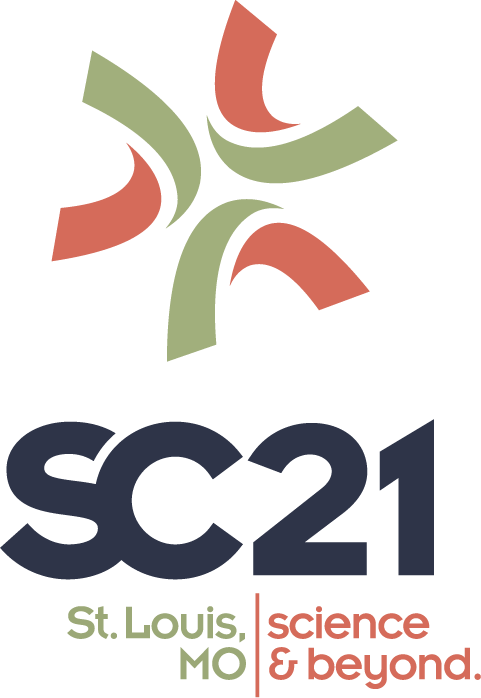 Held in conjunction with SC21: The
International Conference for High
Held in conjunction with SC21: The
International Conference for High
Performance Computing, Networking, Storage, and
Analysis, and in
cooperation with the IEEE Technical Consortium On High Performance
Computing (TCHPC).


Agenda
| Time (CST) | Speaker | Title |
|---|---|---|
| 9:00 | John Leidel | Welcome |
| 9:02 | Michael Wong | Invited Talk |
| 10:00 | Coffee | Break |
| 10:30 | Utpal Bora | OpenMP aware MHP Analysis for Improved Static Data-Race Detection |
| 11:10 | Valentin Clement | Flacc: Towards OpenACC support for Fortran in the LLVM Ecosystem |
| 11:50 | Dounia Khaldi | Extending LLVM IR for DPC++ Matrix Support: A Case Study with Intel® Advanced Matrix Extensions (Intel® AMX) |
| 12:30 | Lunch | Break |
| 2:00 | John Leidel | Welcome Back - Lightning Talk Intro |
| 2:02 | Sandya Mannarswamy | Neural Instruction Combiner for LLVM |
| 2:09 | Alexey Bader | Implementation of SYCL™ Specialization Constants for Intel GPUs |
| 2:16 | Mahesh Lakshminarasimhan | Optimizing Data Layout Transformations in MLIR |
| 2:23 | Alister Johnson | Automatic and Customizable Code Rewriting and Refactoring with Clang |
| 2:30 | Michael Kruse | Loop Transformations using Clang's Abstract Syntax Tree |
| 2:37 | William Moses | Enzyme: Fast, Language Agnostic, Differentiation of Parallel Programs in LLVM |
| 2:44 | Jan Hueckelheim | ORAQL: Optimistic Responses to Alias Queries in LLVM |
| 2:51 | Atmn Patel | Remote OpenMP Offloading | 3:00 | Coffee | Break |
| 3:30 | Ruiqin Tian | A High Performance Sparse Tensor Algebra Compiler in MLIR |
| 4:10 | Ryan Kabrick | Toward an Automated Hardware Pipelining LLVM Pass Infrastructure |
| 4:50 | Tan Nguyen | Facilitating CoDesign with Automatic Code Similarity Learning |
| 5:30 | The | End |
Overview
LLVM has become an integral part of the software-development ecosystem for optimizing compilers, dynamic-language execution engines, source-code analysis and transformation tools, debuggers and linkers, and a whole host of programming-language and toolchain-related components. Now heavily used in both academia and industry, where it allows for rapid development of production-quality tools, LLVM is increasingly used in work targeted at high-performance computing. Research in, and implementation of, program analysis, compilation, execution, and profiling has clearly benefited from the availability of a high-quality, freely-available infrastructure on which to build. This workshop will focus on recent developments, from both academia and industry, that build on LLVM to advance the state of the art in high-performance computing.
Format
This workshop will feature contributed papers, lightning talks, and invited talks focusing on recent developments that build on LLVM to advance the state of the art in high-performance computing.
Topics of interest include, but are not limited to:
- Compiler design for highly-concurrent/parallel environments
- Compilation techniques targeted at high-performance computing codes
- Programming-language implementation techniques enabling high performance and high productivity
- Embedding compilation and dynamic execution at scale
- Tools for optimization, profiling, and feedback
- Source code transformation and analysis
- Gap analyses of open-source LLVM-based tools
Deadlines
- Paper and Lightning Talk submissions due: August 27, 2021 (AoE)
- Notification to authors of acceptance: September 14, 2021
- Camera-ready papers due: October 7, 2021
- Workshop takes place: November 14, 2021
Please see the SC21 home page for registration deadlines and other information associated with the parent event. Pending the acceptance of the final workshop proceedings, the selected papers will be will be published by TCHPC.
Submissions
Please submit papers using the SC21 Submissions system by selecting the "SC21 Workshop: LLVM-HPC2021 Full Papers" form. Papers must be in IEEE conference format (templates are available). Papers should be no more than 12 pages (including references and figures) and must be at least eight pages long. Please also note IEEE's Article-Posting Policy.
To submit a lightning talk, please use the "SC21 Workshop: LLVM-HPC2021 Lightning Talks" form. Deadlines for lightning talks will be the same as the full paper dates provided above.
Organizers
- James Brodman, Intel
- John D. Leidel, Tactical Computing Laboratories
- Patrick McCormick, Los Alamos National Laboratory
- Alexis Perry-Holby, Los Alamos National Laboratory
Program Committee
- Richard Barton, ARM Ltd.
- James Brodman, Intel Corporation
- Sunita Chandrasekaran, University of Delaware
- Albert Cohen, Google
- Teresa Johnson, Google
- Camille Coti, Universite Sorbonne Paris Nord
- Jessica Davies, Intel Corporation
- Christian DeLozier, US Naval Academy
- Tobias Grosser, University of Edinburgh
- Jeff Hammond, NVIDIA
- Alice Koniges, University of Hawaii, Maui HPC Center
- John Leidel, Tactical Computing Labs, LLC
- Patrick McCormick, Los Alamos National Laboratory
- Eun Jung Park, Los Alamos National Laboratory
- Alexis Perry-Holby, Los Alamos National Laboratory
- Nadav Rotem, Facebook
- Frank Winter, Thomas Jefferson National Accelerator Facility
- Michael Wong, Codeplay Software Ltd., Khronos Group Inc.
Contact Information
Alexis Perry-Holby (aperry@lanl.gov)